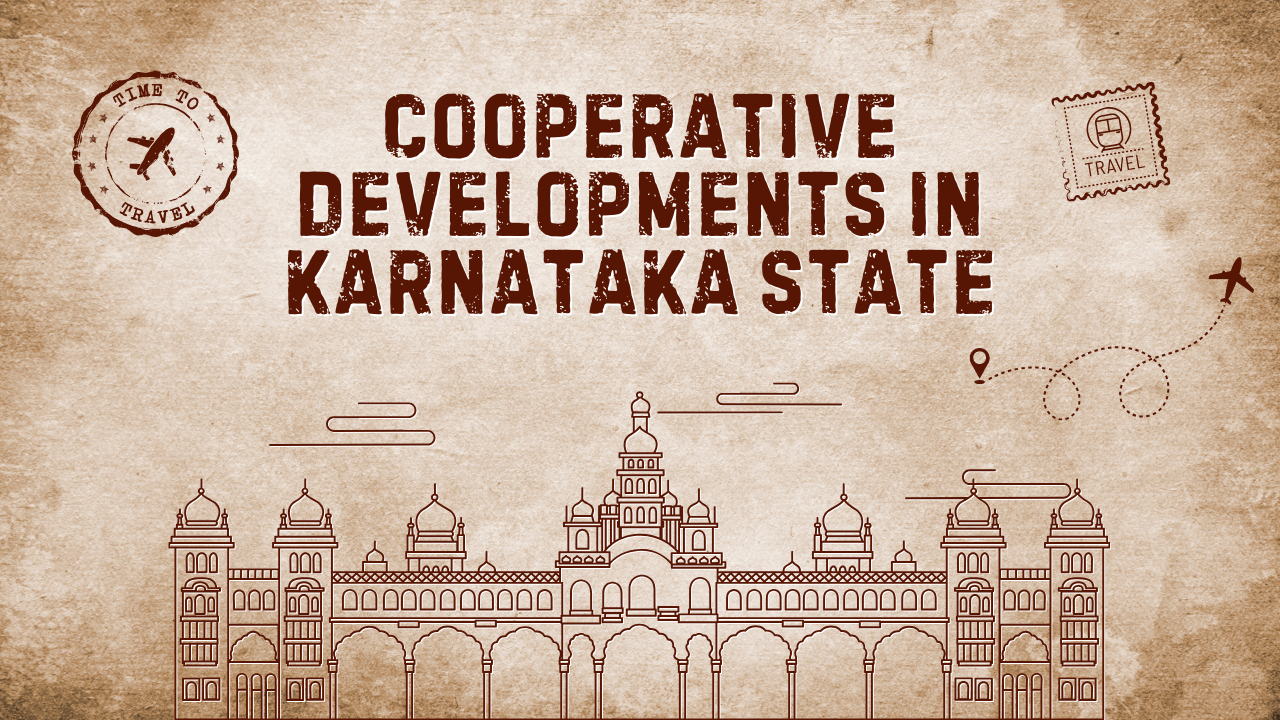
Dr. A. R, Srinath
Former Director, NCUI
The Karnataka State has witnessed tremendous growth in the cooperative sector. The cooperative institutions have played a vital role in the socio-economic development of the state through their active participation in all the sectors like credit, marketing, consumer, dairy, fisheries, horticulture, sugar, housing, construction of godowns, labor, women etc.
VISION:
To promote and encourage the growth of self-reliant, autonomous and economically viable cooperatives through active participation of the members.
MISSION:
- To take steps to see that genuine cooperatives are organized and managed on sound lines as per the basic principles of Cooperation.
- To render guidance and assistance for the development of cooperative, movement in the state and there by promote the economic interest and welfare of the people.
- To serve as a friend, philosopher and guide to all types of cooperatives.
OBJECTIVES:
- Strengthen the credit delivery system of the farmers through PACS and sustain the PACS through effective implementation of Business Development Plans.
- Extend health care facilities to all the members of rural cooperatives.
- Encourage active participation of women & youth.
- Strengthening the infrastructure and financial position of the cooperative societies with a district level integrated approach.
- Modernize the office management for improved efficiency.
- Adopt the various schemes as and when issued / notified by the State Government.
FUNCTIONS:
- To bring suitable amendments in all the Acts and Rules as and when administered by the Department.
- To regulate and guide the cooperative societies as per the Cooperative Act & Rules.
- To ensure that the various departmental schemes pertaining to cooperatives are effectively implemented and reform the process adopt.
- To adopt technological innovation and impart HRD – related training to all the personnel of the Department
Table -2
Overview of the Cooperative Movement in Karnataka
SL .NO PARTICUALRS 2022-23 | ||
1 | No. of Cooperatives, of which | 46,207 |
| a) Working | 40,126 |
| a) Defunct | 2,664 |
| a) Under Liquidation | 3,417 |
2 | Share Capital (Rs.in crores) of which | 11,164 |
| a) Govt. | 678 |
| a) Members | 10,486 |
3 | Membership (in crores) | 2.76 |
4 | Working Capital (Rs. in crores) | 2,24,986 |
5 | Deposits (Rs. in crores) | 1,24,794 |
6 | No. of villages covered by Cooperatives (%) | 100 |
7 | No. of Cooperative Societies under profit. | 27,756 |
8 | No. of Cooperative Societies under Loss | 13,869 |
Sources: GOK, Dept of Cooperation, Annual Report 2022-23
Table -3
Other Types of Cooperative Societies in
Karnataka (2022-23).
Sl.No. | Types of societies | No of societies | No of societies under working |
1. | Fisheries | 701 | 642 |
2. | Electrical | 03 | 02 |
3. | Tree Growers | 17 | 10 |
4. | Sports (Student enrolled) | 01 | 877 |
5. | Hospital | 14 | 07 |
6. | Water | 3552 | 2742 |
7. | Women | 6572 | 5879 |
8. | Primary Poultry | 204 | – |
9. | Labor contract | 93 | 56 |
10. | Lamps | 24 | – |
Sources: GOK, Dept of Cooperation, Annual Report 2022-23
Cooperative Education, Training & PUBLICITY:
Under the aegis of Karnataka State Cooperative Societies Federation, cooperative education and training is imparted to the members and board of directors of the cooperative organizations, with the help of 2% Co-op. Education fund received out of the profit earned by the cooperative institutions.
During 2022-23, the federation conducted 44 such programs in which 3564 members participated. 215 district level programs were conducted and 18312 members were benefited. 1 regular DCM Program was conducted and 669 candidates were benefited.
Diploma in Cooperative management certificate course was conducted through Distance Education Program and 2164 candidates were certified.
NEWS WEEKLY:
KSCF has been publishing “SAHAKARA WEEKLY” for the past 53 years. It includes the news/ views on cooperatives, govt. circulars, progress reports, interviews with senior Cooperators, information on best cooperatives and such other items. At present, about 15000 cooperatives and cooperators have enrolled as subscribers for the news weekly.
Progress and development of Karnataka state
Souharda federal cooperative limited.
The model cooperative Act (Liberal cooperative Act) has been adopted in Karnataka State through Karnataka Souharda Sahakari Act of 1997 which came into force on 01.01.2001 by the consent of president of India.
Souharda cooperatives enjoy functional autonomy in design and implementation of their business plans. The customers service activities are based on the needs of their members. The aim of the Souharda cooperative movement is to strengthen autonomy, self -administration and self- control. Karnataka State Souharda Federal cooperative Ltd., (KSSFCL) Bangalore, is a statutory cooperative Federal body formed by the Karnataka Souharda Act to look after the growth and development of Souharda cooperatives in the state with unique feature of elected body for its management which is first of its kind in India.
Table -4
Progress of souharda Federal cooperatives in
Karnataka 2022-2023
No of cooperatives | 6103 As on 31.12.2023) |
E – stamping centers | 1600 (As on 31.12.2023) |
Members | 66 Lakhs |
Share capital | 1401 crore |
Deposits | 38,004 crores |
Loans | 29,591 crores |
Working capital | 42,954 crores |
Profit | 544 crores |
Research | 3208 crores |
Employees | 60000 |
KSSFCL Main Activities
- To provide education and training to Souharda cooperative so as to strengthen cooperative sector in the state.
- Diploma in cooperatives and banking management has been started under joint collaboration of Karnataka State Rural Development and Panchayat Raj university Gadag, under UGC Act 2 (F) and KSSF cooperatives. During the year d 2023-24, 632 candidates were benefited from this course.
- Karnataka State Govt. has sanctioned a separate court for the KSSFCL for settling the disputes. Till today, 27,838 cases have been registered. 15,767 cases have been settled and 12,071 cases are under the process For the first time in India, E- stamping facilities has been provided to KSSFCC in the cooperative sector
- Statutory DUTIES: KSSFCL has a unique feature of having non-official elected board of management to regulate the activities of Souharda cooperative society in addition to the ongoing in education, training and publicity activities.
- VISION: KSSFCL’s vision is to emerge as world class model cooperatives with emphasis on education, training, research and developmental activities.
- MISSION: KSSFCL’s mission is to contribute to build a strong cooperative system which is autonomous, professional, transparent, accountable and has strong economic viability.
- VALUES: KSSFCL values comprise of (i) service (ii) knowledge (iii) commitment iv) involvement and (v) accountability.
Conclusion:
The Constitution (97th Amendment) Act 2011 has provided fundamental right to the citizens to form cooperative societies of their choices. It is desirable that our citizens may be encouraged to form new societies, in which active participation of women and youth is ensured.
Based on the provisions under the Directive principles of State policy, in order to facilitate viable working of the cooperatives, it is necessary to ensure voluntary formation of cooperatives, and facilitate their autonomous functioning, Emphasis should be given to member democratic control, member economic participation and professional management in the working of cooperatives.






